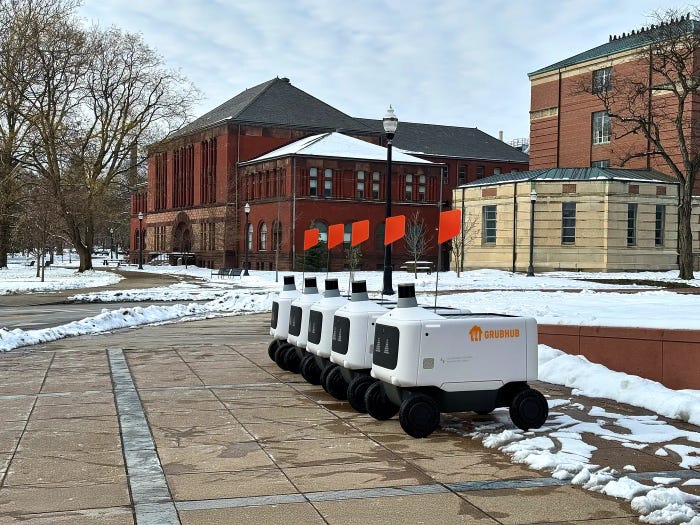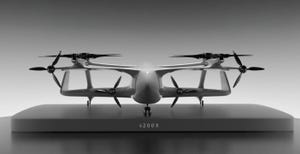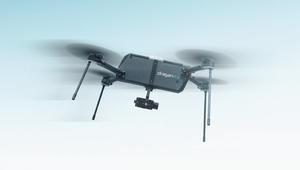Flying Taxi Vertiport Construction Starts in DubaiFlying Taxi Vertiport Construction Starts in Dubai
Joby is planning for its air taxi service to launch in the United Arab Emirates in 2025

Construction has started for the first vertiport in the planned Dubai air taxi network by air taxi company Joby Aviation.
The vertiport for the takeoff and landing for the Joby eVTOL (electric vertical takeoff and landing) vehicle is being constructed at the Dubai International Airport (DXB) by Dubai Road and Transport Authority (RTA) and Skyports, partners of Joby.
Joby is planning for four initial locations to form its vertiport network for the air taxi service planned for launch in the United Arab Emirates in 2025.
In addition to DBX, Joby vertiports would be developed at Palm Jumeirah, Downtown Dubai and the Dubai Marina.
Travel in the Joby flying taxi from DBX to Palm Jumeirah would take 12 minutes, compared to a 45-minute drive.
“Our air taxi service in Dubai will offer tourists and residents the opportunity to experience a revolutionary travel experience, with faster movement between key destinations and breathtaking views of the city skyline,” said Joby founder and CEO JoeBen Bevirt.
“With the start of construction on our air taxi network, our shared vision for electric air taxi service in Dubai is coming to life. I’m grateful to His Highness Sheikh Mohammed bin Rashid Al Maktoum and to the government of Dubai for their support and commitment to innovation.”
Joby, the RTA, and Skyports signed a deal earlier this year providing Joby with exclusive access to the Dubai air taxi market for six years.
The Joby electric flying taxi is designed to carry a pilot and four passengers and travel up to 200 mph. The company plans to operate its EAVs in New York City and Los Angeles along with its partner Delta Air Lines.
The electric aerial vehicle (EAV) maker recently conducted exhibition flights with Toyota in Japan, in the eVTOL company’s first flights outside the U.S.
The flights and showcasing of the Joby electric aerial vehicle (EAV) were at the Toyota Higashi-Fuji Technical Center in Shizuoka, Japan.
Toyota has been investing in Joby since 2019, starting with Toyota Ventures, in addition to sharing knowledge of the Toyota systems for planning, manufacturing methods and tooling design.
Joby recently announced a public offering of common stock expecting to raise $202 million for the EAV maker.
Joby intends to use the financing to fund its “certification and manufacturing efforts, prepare for commercial operations and for general working capital and other general corporate purposes,” the company stated in a regulatory filing.
That funding followed a $500 million recent investment by Toyota, which brought its total investment in the EAV maker to $894 million.
That initial investment grew to $394 million and Toyota engineers now work side-by-side with Joby staff in California
Joby and Toyota last year signed a long-term agreement for Toyota to supply key powertrain and actuation components for Joby’s EAVs.
The new investment is scheduled in two parts, one later this year and the second in 2025.
The new funding round comes shortly after German eVTOL jet maker Lilium announced it is facing insolvency as two of its subsidiaries apply for self-administered insolvency.
The move was triggered by Lilium being denied a $54 million loan guarantee it was seeking from the government of Bavaria.
Joby recently applied to become the first certified air taxi operator in the United Arab Emirates.
Joby already has partnership with the UAE through a memorandum of understanding with the Department of Municipalities and Transport Abu Dhabi, the Abu Dhabi Department of Economic Development and the Department of Culture and Tourism, setting Joby up to establish and scale flying taxi services in Abu Dhabi and beyond.
Joby has raised more than $2 billion from Toyota, Delta Air Lines, SK Telecom and Uber and has logged more than 33,00 miles of flight with a full-scale prototype, according to the company.
While Joby is partnered with Delta, Archer Aviation, the other major air taxi company, has a partnership with United Airlines.
Read more about:
Flying CarsAbout the Author
You May Also Like


.jpg?width=700&auto=webp&quality=80&disable=upscale)
.jpg?width=700&auto=webp&quality=80&disable=upscale)

.jpg?width=300&auto=webp&quality=80&disable=upscale)


